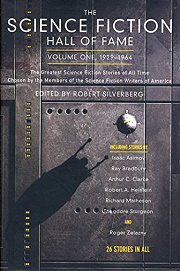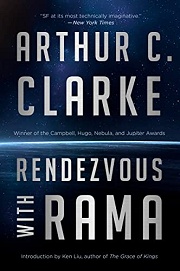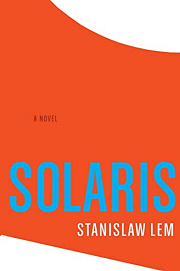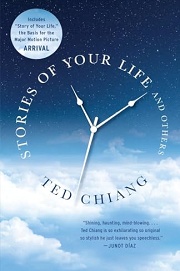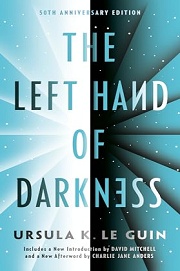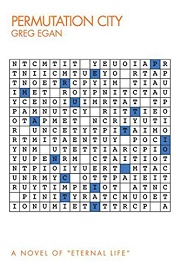Share your thoughts in a quick Shelf Talk!
The Science Fiction Hall of Fame, Volume One, 1929–1964 by Robert Silverberg
From time-twisting paradoxes to first contact and the birth of artificial minds, this landmark anthology gathers the stories that shaped modern imagination. Curated by masters of the field, The Science Fiction Hall of Fame, Volume One, 1929–1964 is a treasure chest of essential SF—perfect for newcomers and veterans alike.
Have you read this book? Share what you liked (or didn’t), and we’ll use your answers to recommend your next favorite read!
Love The Science Fiction Hall of Fame, Volume One, 1929–1964 but not sure what to read next?
These picks are popular with readers who enjoyed this book. Complete a quick Shelf Talk to get recommendations made just for you! Warning: possible spoilers for The Science Fiction Hall of Fame, Volume One, 1929–1964 below.
In The Science Fiction Hall of Fame, Volume One, 1929–1964, did you enjoy ...
... rigorous, idea-first problem‑solving and awe from confronting inscrutable artifacts?
Rendezvous with Rama by Arthur C. Clarke
If the stark realism and engineering logic of stories like “The Cold Equations” and the sense‑of‑wonder puzzle of Blish’s “Surface Tension” grabbed you, you’ll love how Rendezvous with Rama treats the alien cylinder Rama as a solvable mystery. You’ll follow Norton and the Endeavour crew as they map frozen seas, track migrating biots, and reverse‑engineer a world‑sized machine—each discovery unfolding with that same careful, scientific curiosity that made “A Martian Odyssey” and “First Contact” so electrifying.
... deep, unsettling questions about consciousness, perception, and the limits of human understanding?
Solaris by Stanislaw Lem
If “Nightfall” left you mulling over how fragile knowledge can be, and “Scanners Live in Vain” or “Fondly Fahrenheit” made you question what a mind really is, Solaris will hit the same nerve. Psychologist Kris Kelvin confronts an ocean‑mind that resurrects his dead lover, forcing him—like the best Hall of Fame tales—to face an intelligence that refuses tidy answers and turns the investigators into the investigated.
... elegant, idea‑driven short stories that culminate in mind‑shifting revelations?
Stories of Your Life and Others by Ted Chiang
If you relish the clean, devastating turns in pieces like “Nightfall,” “It’s a Good Life,” or the identity whiplash of “Fondly Fahrenheit,” Chiang’s stories deliver that same crystalline build to a perspective‑shifting payoff. “Story of Your Life” rewires causality through linguistics, “Division by Zero” bends mathematics into heartbreak, and “Tower of Babylon” literalizes cosmology—all with the precision and surprise you associate with the Hall of Fame’s sharpest endings.
... immersive first contact and culture‑clash exploration with truly alien social norms?
The Left Hand Of Darkness by Ursula K. Le Guin
If the cultural curiosity of “A Martian Odyssey” and the negotiated standoff of “First Contact” thrilled you, The Left Hand of Darkness deepens that encounter. Envoy Genly Ai must navigate Gethen’s ambisexual society and its politics, culminating in a grueling glacier crossing with Estraven that feels like the most human version of alien outreach—precisely the kind of careful, empathetic contact the anthology’s classics gesture toward.
... head‑on, idea‑dense thought experiments that reward close reading with brainy payoffs?
Permutation City by Greg Egan
If “Flowers for Algernon” made you weigh personhood and “Scanners Live in Vain” pushed you to rethink what counts as a life, Egan’s Permutation City takes those questions to their logical extreme. As copies of consciousness (Dust Theory, Autoverse) vie for meaning and survival, you’ll get that same exhilarating, puzzle‑box rigor—only now the puzzle is reality itself, solved with the cool, relentless clarity you expect from the Hall of Fame’s most cerebral pieces.
Unlock your personalized book recommendations! Just take a quick Shelf Talk for The Science Fiction Hall of Fame, Volume One, 1929–1964 by Robert Silverberg. It’s only a few questions and takes less than a minute.
